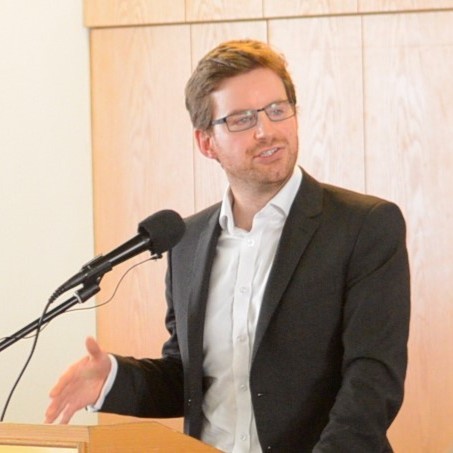Over the last 20 years international law rules developed in the aftermath of the Second World War to regulate armed conflicts have come under immense pressure from changes in the nature of armed conflict.
These changes include the growing prominence of conflicts involving non-State armed groups and the emergence of new weapons systems, such as armed drones, that make it easier for States to target their enemies abroad. The result has been considerable uncertainty over how international law regulates these different types of conflict.
Dr Lawrence Hill-Cawthorne’s research has been at the forefront of these pressing debates, developing novel and comprehensive accounts of the role of international law in regulating contemporary conflicts.
This includes an award-winning monograph, Detention in Non-International Armed Conflict (OUP 2016), the leading work on the international law rules that protect detainees in conflicts with armed groups.
Dr Hill-Cawthorne’s scholarship has been cited by the England and Wales Court of Appeal, UK Supreme Court, UK Parliamentary Joint Committee on Human Rights and International Committee of the Red Cross. He has advised UN Special Rapporteurs, the UK Ministry of Defence and the International Bar Association, and he has presented to academics and government lawyers around the world. He frequently assists with cases before domestic and international courts.
Future work includes writing a new book on the application of human rights law in armed conflict, and developing a new project on the role of international courts in addressing violations in the context of armed conflict and achieving justice for victims.
Dr Hill-Cawthorne said “I am absolutely honoured to receive this award. There are few areas of international law as contested as the law that applies in armed conflict, with different States and scholars taking staunchly opposing views on such fundamental questions as the role of human rights law in armed conflict, the due process safeguards available to detainees, and the circumstances in which it is lawful to lethally target someone.
“This uncertainty exposes victims of war to tremendous risk. My research tries to grapple with this uncertainty by offering ways through these intractable debates and the prize will allow me to continue this important work.”
Dr Tommaso Jucker, Senior Research Fellow in Biological Sciences at the University of Bristol, also received one of the Philip Leverhulme Prizes for his research on forest ecology and global environmental change.
Chosen from over 400 nominations, the Levehulme Trust offered five prizes in each of the following subject areas: Biological Sciences, History, Law, Mathematics and Statistics, Philosophy and Theology, and Sociology and Social Policy.
The prizes recognise and celebrate the achievements of outstanding researchers whose work has already attracted international recognition and whose future careers are exceptionally promising. Each worth £100,000, they may be used for any purpose to advance the winner’s research.
The annual scheme commemorates the contribution to the work of the Levehulme Trust made by Philip, Third Viscount Leverhulme and grandson of William Lever, the founder of the Trust.
Professor Anna Vignoles, Director of the Leverhulme Trust, said: “In its twenty-second year, this scheme continues to attract applications from exceptionally high calibre researchers. The Leverhulme Trust is thrilled to award prizes to academics undertaking work on an impressive range of topics, from plant evolution to the history of capitalism, family law to theoretical statistics, and the philosophy of science to human trafficking.
“We are very proud to support these researchers through the next stage of their careers. Selecting the winners gets tougher each year, and we are incredibly grateful to the reviewers and panel members who help us in our decision-making.”
